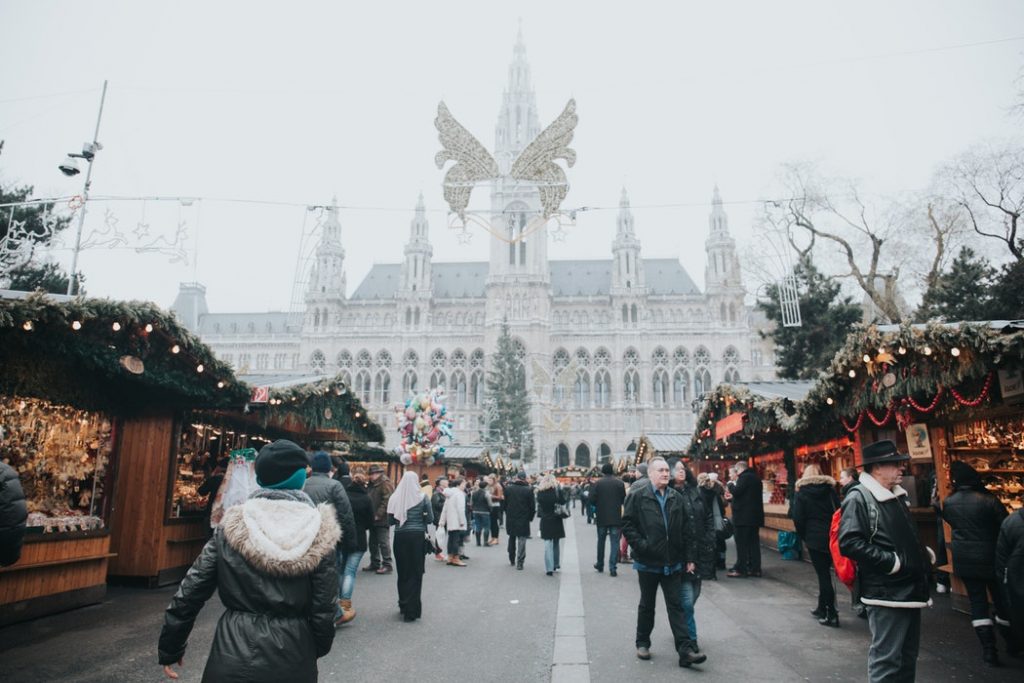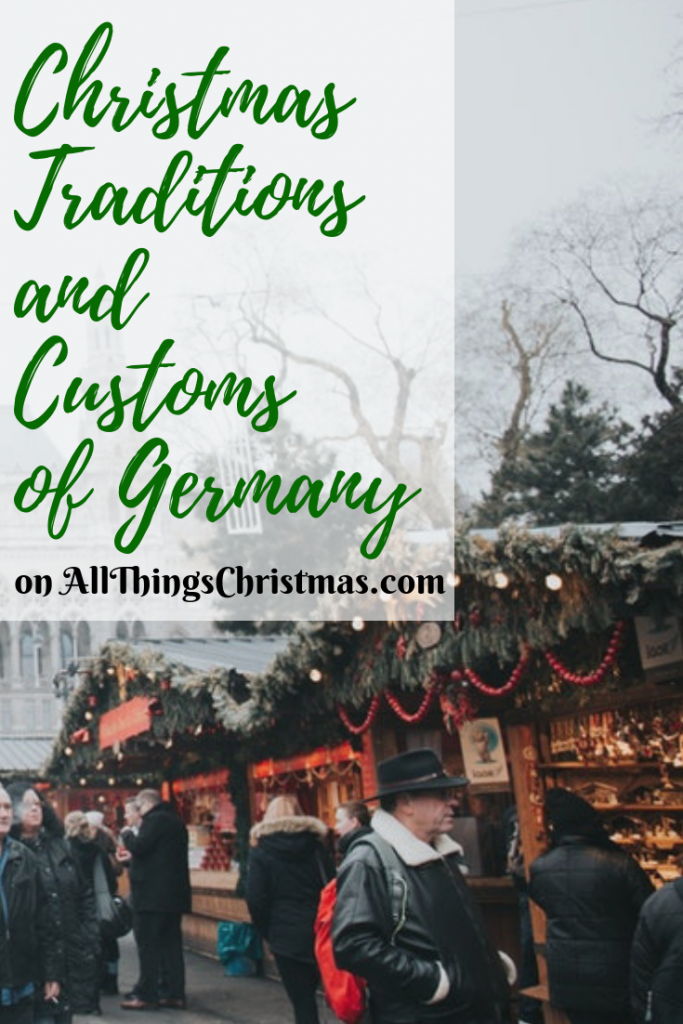Christmas Traditions and Customs of Germany
From Japan to Germany, countries around the world have their unique traditions and customs surrounding the Christmas holiday season. While spending Christmas away from your home country may sound daunting, you can rest assured that you’ll find a new way to celebrate, no matter where you are, and if you’re in Germany, you’ll be in for a real treat. Check out the Christmas history and traditions of Germany to know how to celebrate.

Christmas Markets
With the Christmas season in Germany comes the fantastic Christmas markets. Find all the fun gifts, artisan crafts, and sweet treats, like stollen, roasted almonds, or lebkuchen — a gingerbread treat — you crave all in one place. The Christkindlmarkt, in German, are set up throughout the country starting around early December (or in some cases even earlier), offering something for kids and adults alike. Aside from rows and rows of fresh, authentic German treats and beautiful gifts, you’ll find Christmas choirs, brass bands, and of course, tons of Christmas spirit. If you need help choosing a Christmas market, check out the 10 best European Christmas markets.
St. Nicholas Day
Christmas celebrations in Germany are a month-long event, with various celebrations and traditions throughout December, leading up to Christmas Day itself. The season officially starts on December 6th on Nikolaustag, or the day of Saint Nicholas. Kids certainly love this fun, unique celebration. The night before Nikolaustag, children leave a boot, or a Nikolausstiefel out beside the front door for St. Nick. During the night, while the little ones sleep, Nikolaus comes to each home to leave sweets inside the boot or shoe. Nikolaus has a long white beard, red and white robes, and a golden staff, with an appearance similar to Santa Claus in the US, but with many religious influences.
[amazon_link asins=’0689846819,0758613415,0310731151,0881415111′ template=’ATCAmazon-IMG’ store=’allthingsch0e-20′ marketplace=’US’ link_id=’01e00527-d95b-11e8-826e-ff4f23b625ee’]
Advent Season
Leading up to Weihnachten, the German word for Christmas, many German families celebrate the advent season. During this time, families set up an Advent wreath, or Adventskranz on the fourth Sunday before Christmas day. This year’s advent season will start on December 2nd, 2018, when families set out the wreath adorned with four candles, one to be lit each Sunday until Christmas Day. Many children also use an Advent calendar, similar to in the United States. On each day during the Advent season, children open the doors on the calendar for a chocolatey treat.

A Christmas Tree
Yes, Germans also put up the this classic symbol of Christmas. In fact, Christmas trees in Germany date all the way back to the 17th century, in Strasbourg, in the Alsace region. Originally, the German fir trees were adorned in roses, apples, colored paper, and candies. If you’re interested in delving into a little Christmas history, read more about the first trees and the origins and history of Christmas trees. Tannenbaum, as it’s called in German, is usually set up on the afternoon of December 24th, just in time for Christmas day. The most common way to get a Christmas tree, also called Weihnachtsbaum, is by heading straight into the woods to chop down your ideal tree yourself.
Christmas Eve
After the tree is set up, families across Germany get ready for Christmas Eve, known as Heiligabend. While in the US, families have an extravagant dinner and exchange gifts on the 25th, however in Germany, this all happens on the 24th. German families sit down for a large dinner, usually serving up some traditional German frankfurters, as well as fish, fondue, and sometimes, raclette. Christmas dinners vary around the world, and Germany’s are definitely not to miss. Religious families will go to mass earlier in the day, where children will perform in a krippenspiel, or a nativity play.
After church, and after the dinner, families sit down to exchange gifts. Gift-giving is so important, it even has its own name: Bescherung. But don’t think you can just go right in and start opening presents. German children must wait until they hear the little bell being rung to tell them that Christkind, baby Christ, or Weihnachtsmann, St. Nicholas, has left the home.
Christmas Day
While not as highly celebrated as Christmas Eve, Christmas Day in Germany is still full of festivities. The family sits down for a Christmas Day meal, typically involving lamb, goose, chicken, fondue, and more delicious dishes.
About the Guest Author
Zack is a recovering technical recruiter who traded in his suit and tie in Silicon Valley for salsa music and a passion for writing in Medellin, Colombia. When not writing for AllTheRooms, the world’s first vacation rental search engine, you can find Zack with his nose in a book, puttering around nature, or getting ultra-competitive while watching Jeopardy.



Leave a Reply